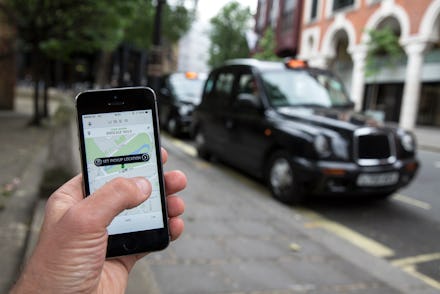Uber drivers in London just got a huge win: They’re now classified as employees

Uber drivers in London have won a landmark case to be classified as employees rather than self-employed contractors, the London Employment Tribunal ordered Friday. This distinction means drivers are now protected by a host of rights otherwise not afforded to them, such as being paid a minimum wage and granted time to rest.
The Tribunal's official response was of Shakespearean proportions, even quoting Macbeth at one point. Literally.
"The lady doth protest too much, methinks," it said of Uber and its lawyers.
Some of Uber's drivers have earned an hourly rate of about £5 ($6.08), well below the £7.20 ($8.75) national minimum wage for anyone 25 years or older.
GMB — a union for all workers in the United Kingdom — led the charge against Uber.
"Uber drivers and thousands of others caught in the bogus self-employment trap will now enjoy the same rights as employees," GMB said in a statement Friday.
"Similar contracts masquerading as bogus self-employment will all be reviewed," the union warned.
The Trade Union Congress, which represents a vast number of unions across the U.K., echoed the GMB, arguing the adjudication has wider implications for businesses using similar models to Uber's.
"The case brought against Uber by a group of its drivers has exposed the dark side of the gig economy," TUC General Secretary Frances O'Grady wrote in the Guardian after the ruling. "For many workers this is a rigged economy, where bosses can weasel out of paying the minimum wage or providing basics such as holiday pay and rest breaks."
In the past, Uber drivers have launched an assortment of class-action lawsuits and efforts to unionize in a number of cities — such as Seattle, San Francisco and New York, to name a few. And with every loss, Uber responds with legal resistance — which is sometimes met with success.
According to O'Grady, the company's status quo is fundamentally inequitable.
"This has created a severe imbalance of power," she wrote. "It makes collective bargaining for fair pay and decent conditions far harder and gives companies more scope to reward executives and shareholders, while keeping pay down for their workers."